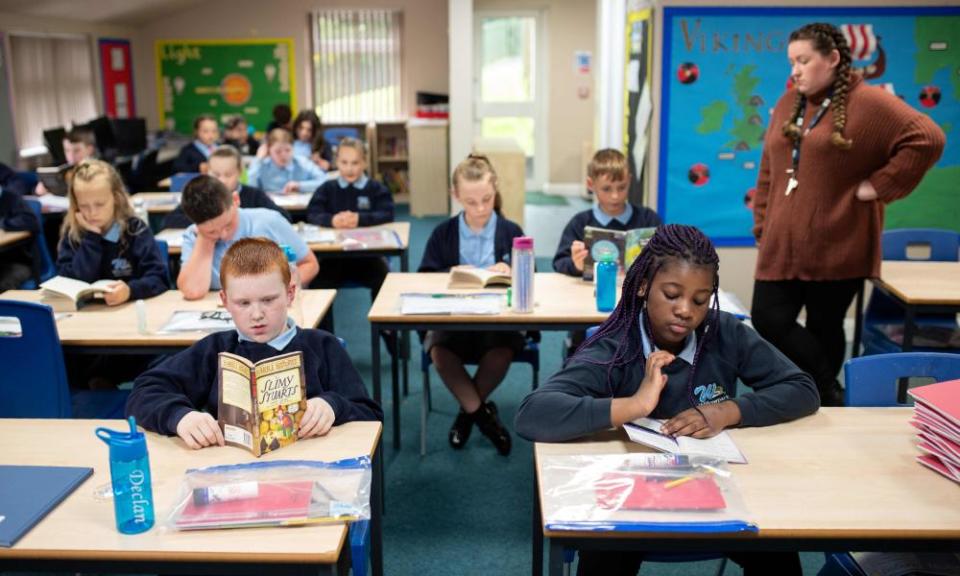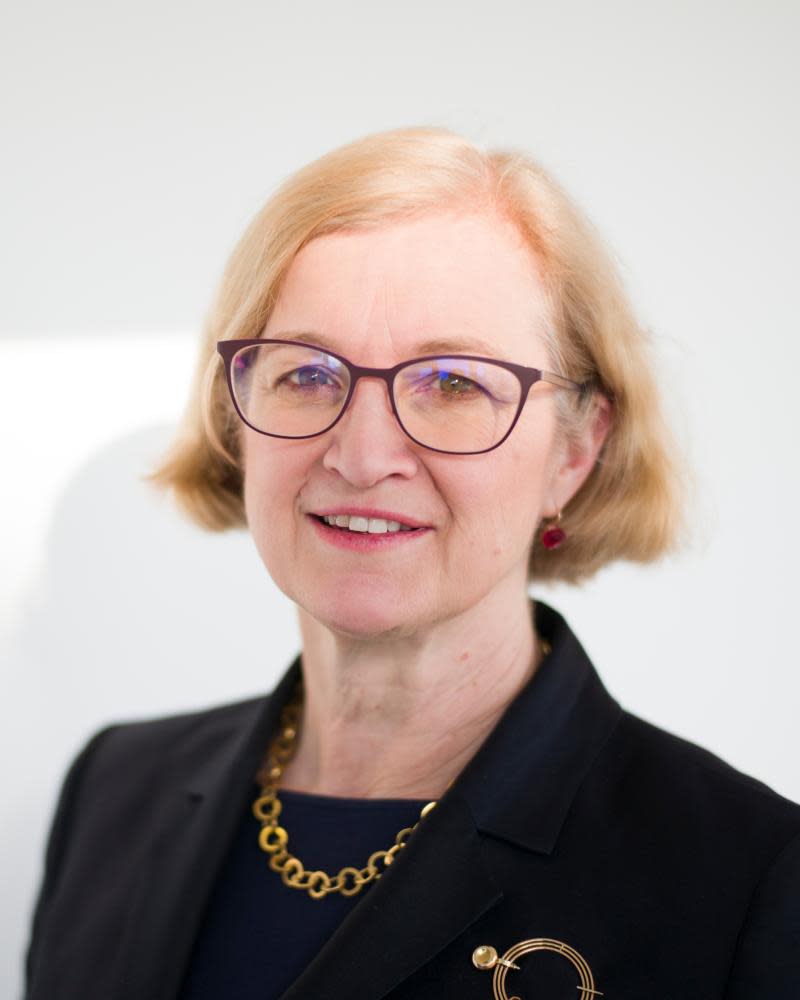Rise in pupils in England being home-schooled due to Covid fears, says Ofsted chief

Anxious parents are taking their children out of school to home-educate them, as widespread misinformation on social media fuels fears over the risks of Covid, the head of Ofsted has said.
In an exclusive interview with the Guardian, the chief inspector of schools in England, Amanda Spielman, said that in a pilot study of 130 schools last month, one-third reported unusually high numbers of pupils being taken off roll to be home-schooled.
While the trend might be explained in part by parents who enjoyed teaching their children over lockdown, Spielman said parents’ health fears were likely to be contributing, while others were disappointed by the support their children received from their school during lockdown.
In her first interview since all children returned to school in England, Spielman said primary and secondary schools who took part in the pilot study told Ofsted inspectors that misinformation on social media was presenting a real problem for headteachers.
“A lot of parents have absorbed a lot of misinformation that’s making them more anxious than they need to be,” said Spielman. “Some of the headteachers told us they are having to explain and re-explain the real situation to parents.”

On the increase in home education, she said: “We saw it in about a third of pilot schools. When we asked we were told there were unusual levels of children leaving for home education. These are children who have been on roll who have not come back because they’ve been withdrawn to be home-educated.
“If it’s people who are able and enthusiastic about home-educating, that might be a great option for them. But my concern would be people who are driven by fear, who have perhaps lost confidence in schools’ ability to keep children safe or who have become genuinely so anxious for their children, who are taking it on when they are not actually well-equipped to do it.”
Ofsted’s findings coincide with the Department for Education’s school attendance figures published this week, which show about 800,000 pupils still out of school three weeks into the new term.
Spielman said the current climate was “febrile” and that myths were proliferating about schools – that football cannot be played, that children are not allowed to use sewing machines and that doors have to be open at all times, even if the pupils are getting hypothermia.
“It’s an anxious time for many adults, I completely understand. Yet the great art of being responsible adults is making sure we don’t transfer our anxiety to children,” she said.
Teachers also reported that children’s physical health had deteriorated during lockdown, when schools were closed to all but pupils described as “vulnerable” by the government and children of key workers. “Children are much less fit than they were,” said Spielman.
Over the past months, there have been fears about the impact on children’s mental health, but Ofsted’s pilot schools have highlighted instead the impact on physical health and Spielman warned against schools being turned into “therapeutic institutions”.
“For most children the most important thing for them is the restoration of normality. We don’t need therapy for all the children in the country.”
Spielman also said next summer’s exams should go ahead, rejecting calls for them to be cancelled in favour of school assessments. After the exams crisis this year, when algorithm-moderated grades were pulled in favour of school-assessed grades, Spielman was appointed to chair a new board committee to oversee the work of the exams regulator, Ofqual.
“I get a pretty strong sense from most corners: let’s not repeat what we did this year,” she said. Spielman also rejected criticism about Ofsted’s autumn visits, which began this week, with full inspections due to start again next year. Early feedback, she said, suggested schools found the visits “genuinely collaborative and helpful”.
Commenting on the rise in home education, Geoff Barton, the general secretary of the Association of School and College Leaders, said: “Most children are better off at school. It is understandable that in this time of anxiety, some parents may be worried about the health implications of coronavirus, and this concern may be exacerbated by misinformation.
“However, we would reassure parents that schools have done a very good job in putting in place control measures to minimise the risk of the virus being transmitted. If they have any concerns, we would encourage them to raise these with their school and would urge them against rushing into a decision to withdraw their child.”
This week, the Commons education committee announced it was to hold an inquiry into home schooling to see if more needed to be done to ensure children educated at home were receiving a high-quality education. Their concerns pre-date lockdown.
Figures dating back to March 2019 suggest that more than 60,000 children in England are home-educated, marking an increase in recent years, but the true figure is likely to be far higher as parents are not required to register home-educated children with their local authority.
Robert Halfon, the chair of the education committee, said: “A parent will always know what is best for their child, but we want to make sure that the right support is in place for home learning to ensure every pupil in the country, whatever their background and wherever they are taught, can receive the education they deserve.”

